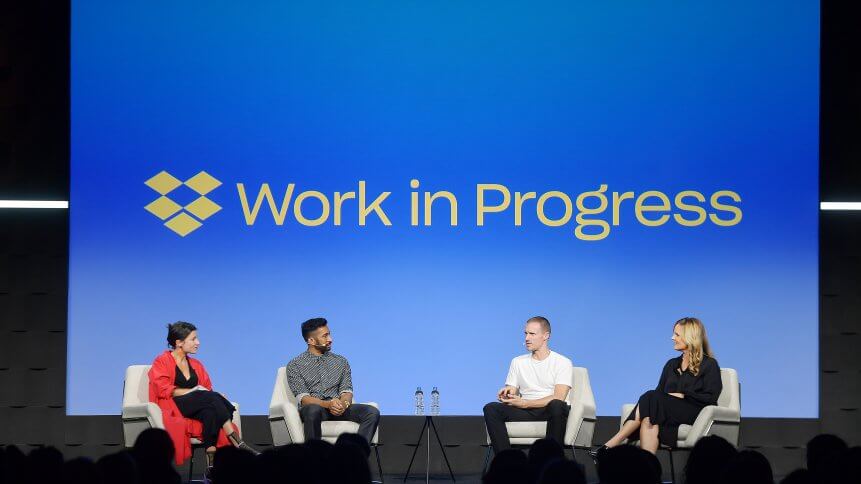Dropbox takes ‘virtual-first’ approach to workforce

- The job cuts in part reflect the company’s decision to take a “virtual first” approach to staff
- In total, Dropbox is eliminating 315 positions or 11% of its workforce
Two months ago Dropbox announced that it is becoming a Virtual First company whereby nearly 3,000 of its employees will continue to work remotely most of the time, but will occasionally go into the office for more collaborative and team-building work.
The file-hosting service provider also said it would revamp its offices, turning them into what it calls “Dropbox Studios”.
As we emerge blinking into 2020, companies are all scrambling to start the new year with an improvised outlook that befits the new normal. Dropbox too realized the need to focus on its key initiatives, which include improving the core Dropbox experience and investing in new products for distributed teams.
But that decision came with a cost. On Wednesday, the San Francisco-based company said it will lay off 11% of its global workforce, or 315 employees, in an effort to streamline its team structure and focus on top priorities. In a regulatory filing, the cloud-based file-sharing company also disclosed that its COO Olivia Nottebohm would be stepping down on February 5.
Back to basics?
Dropbox also said it will offer laid-off workers in North America three months of base pay and six months of healthcare. Impacted employees have also started getting notice of their termination beginning January 13 through one-on-one conversations.
Dropbox CEO Drew Houston said in an employee memo included in the SEC filing that “Last spring I made a commitment to all of you to preserve job security through 2020, and it was important to me that we honored that promise. But looking ahead at 2021 and beyond, it’s clear that we need to make changes in order to create a healthy and thriving business for the future. Over the past year, we’ve talked a lot about the importance of running a tight ship and getting the company ready for the next stage of growth.”
“This will require a relentless focus on initiatives that align tightly with our strategic priorities and having the discipline to pull back from those that don’t. Unfortunately, this means that we’re reducing the size of some of our teams,” Houston said in the memo.
YOU MIGHT LIKE

IBM layoffs – a lesson in (bad) crisis leadership?
What does it mean for businesses?
Houston said the company’s “painful, but necessary” decisions have set them on the right path, and now they need to make sure their teams and investments also line up. “For example, our Virtual First policy means we require fewer resources to support our in-office environment, so we’re scaling back that investment and redeploying those resources to drive our ambitious product roadmap.”
With many organizations continuing to work remotely in a rocky economy, many other business leaders will also be forced to make “painful, but necessary” decisions that redefine the work structure, communication structure, job roles, and responsibilities beyond traditional office atmosphere, triggers, and procedures in executing a new normal business model, and the types of tools, technologies, and platforms required for a seamless work environment.
Any businesses faced with making redundancies can at least be clear and upfront with their workforce as to the reasoning behind decisions. A report by O.C Tanner based on a survey of 1,715 employees across the UK, US, and Canada found leadership transparency to be a critical factor during the health crisis, with employees craving honesty, authenticity, and regular communications.
Businesses can also support former employees in finding new positions, such as by providing recommendations among their network. Airbnb attracted positive coverage for its support of laid-off staff when it launched a talent directory for those affected, alongside the creation of an alumni placement team from its recruiters, and an offer of four months of career services through RiseSmart, a company that specializes in career transition and job placements.








